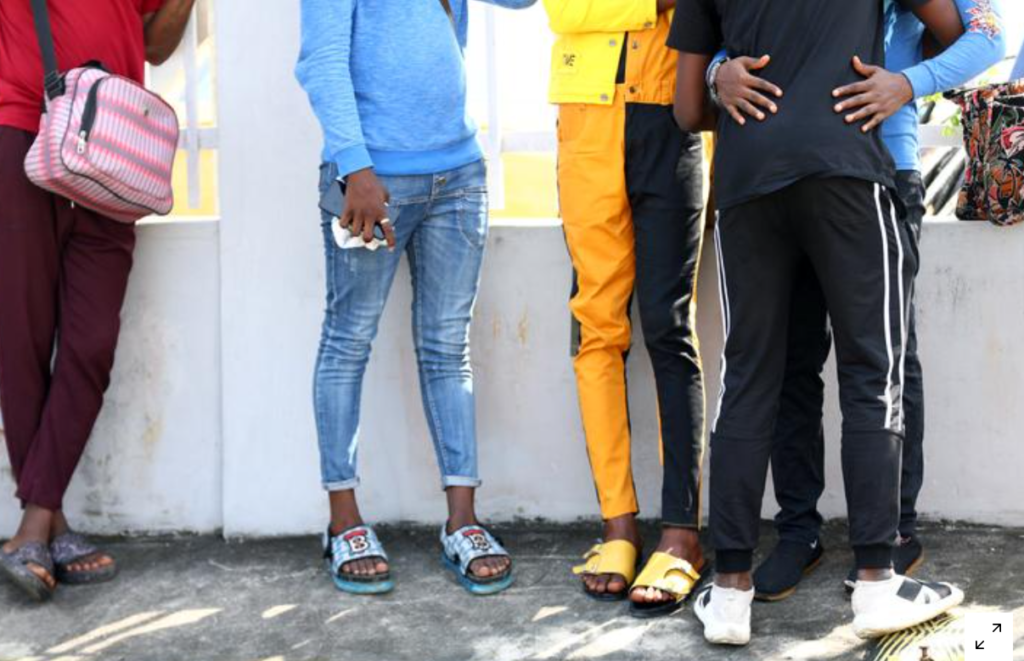Nigeria’s high court has struck out charges against 47 men accused under the country’s 2014 homosexuality law. The judge ruled the prosecution had not provided sufficient evidence. The charges were made at a birthday party in 2018. Struck out does not mean dismissed; the prosecution can bring the same charges again.
Lawyers for the prosecution and defense say no one has ever been convicted under the 2014 law.
The primate of the Anglican Church of Nigeria recently reiterated his church’s stance against homosexuality and marriage equality.
Justice Rilwan Aikawa struck out the case and said he had done so due to the “lack of diligent prosecution”. The specific charge the men faced, relating to public displays of affection, carries a 10-year prison sentence.
…
[Some of those charged have] told Reuters they had been stigmatized as a result of the raid and a televised news conference held by police in which they were identified the day after their arrest.
Chris Agiriga, another of the men, said the striking out of the case would not help him to be reconciled with his family who had rejected him over the matter.
The Church of Nigeria [Anglican Communion] at this End Time is called for the Defence of the Gospel. We are totally committed to contending for the faith once for all delivered to the saints.
Together with all Bishops, Clergy and Laity, we shall stand against the Revisionist strange Doctrines that deny the Authority of the Word of God, the Bible and its power to order and guide our lives and practice. We will continue to uphold the Orthodox faith in Christ Jesus, the Authority of the Scripture and the Anglican Heritage, as we have received it. We shall resist the invasion of Homosexuality and Lesbianism and occultism in the Church of God.
We shall not yield to the shrewd or subtle appeal of the Church of England or America or their agents to compromise the Gospel of the Lord Jesus Christ.
Reuters caption of photo: Some of the men charged with public displays of affection with members of the same sex are seen gathered outside a court in Lagos, Nigeria October 27, 2020. REUTERS/Temilade Adelaja

